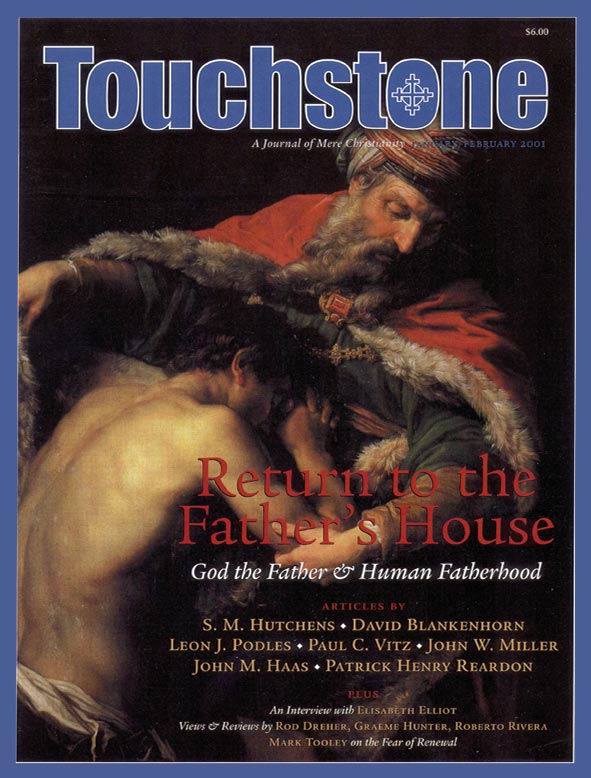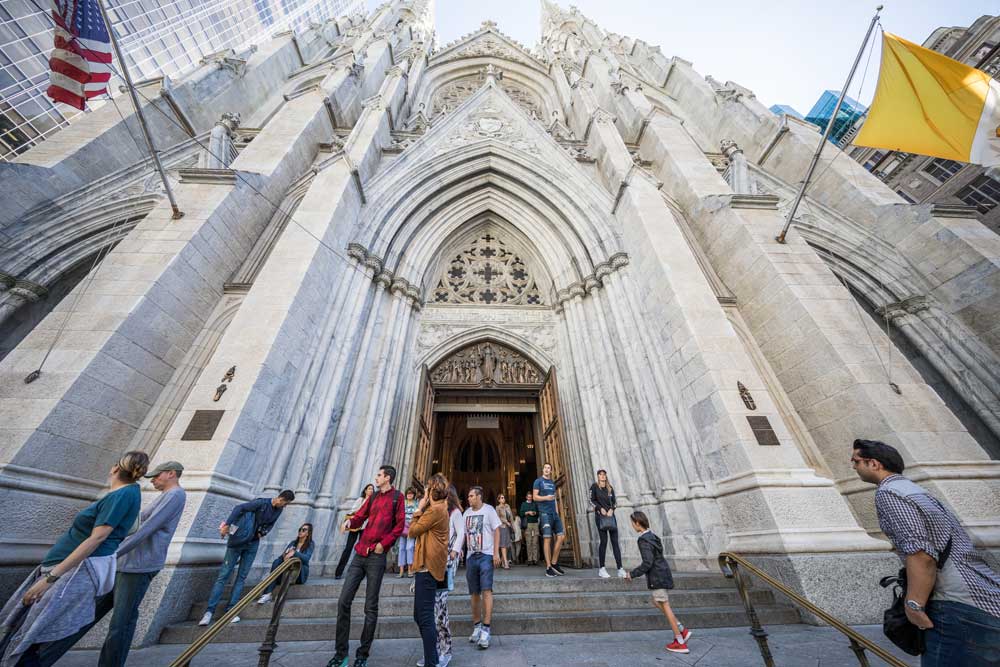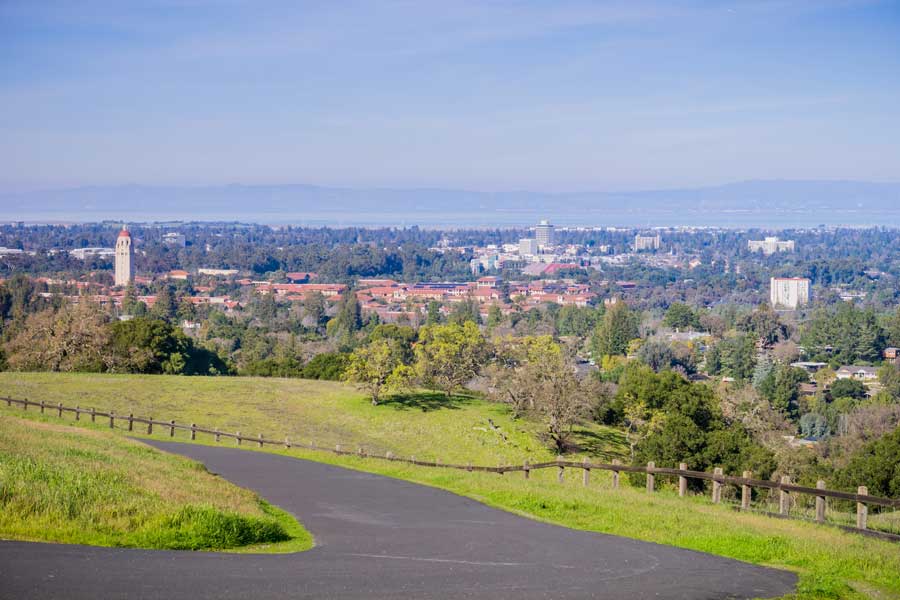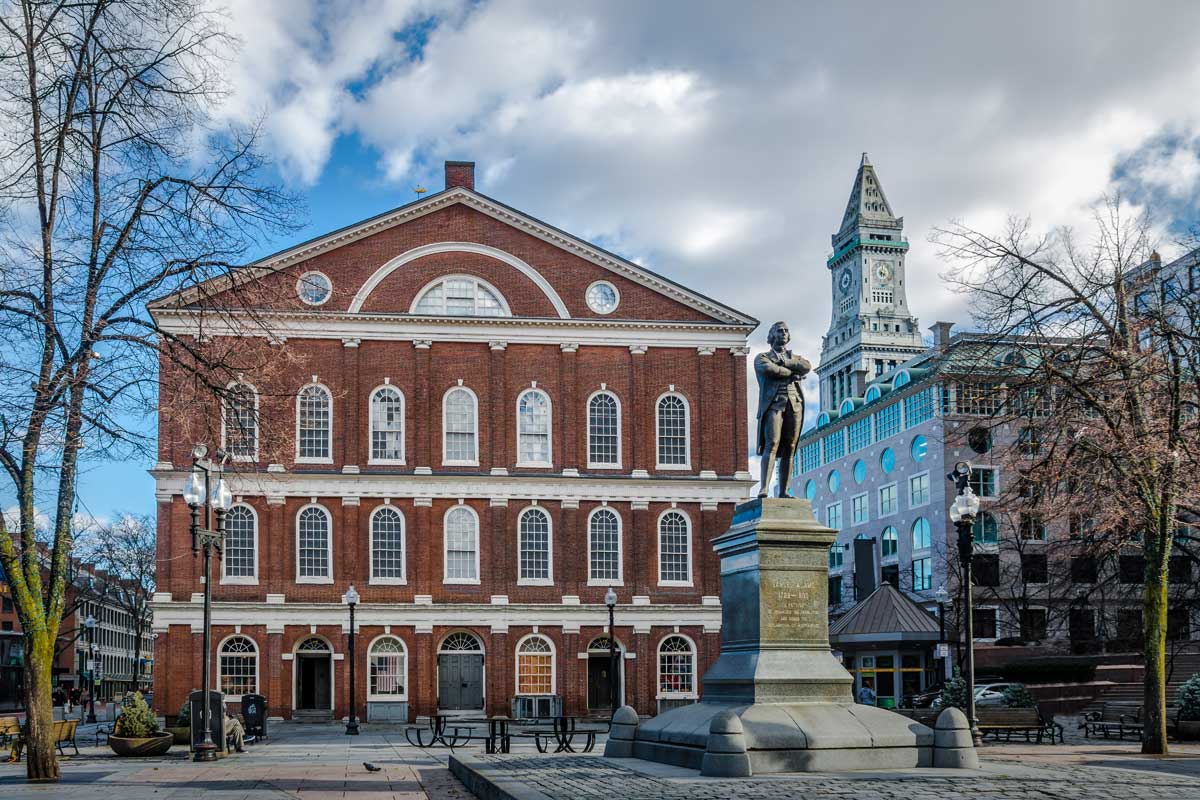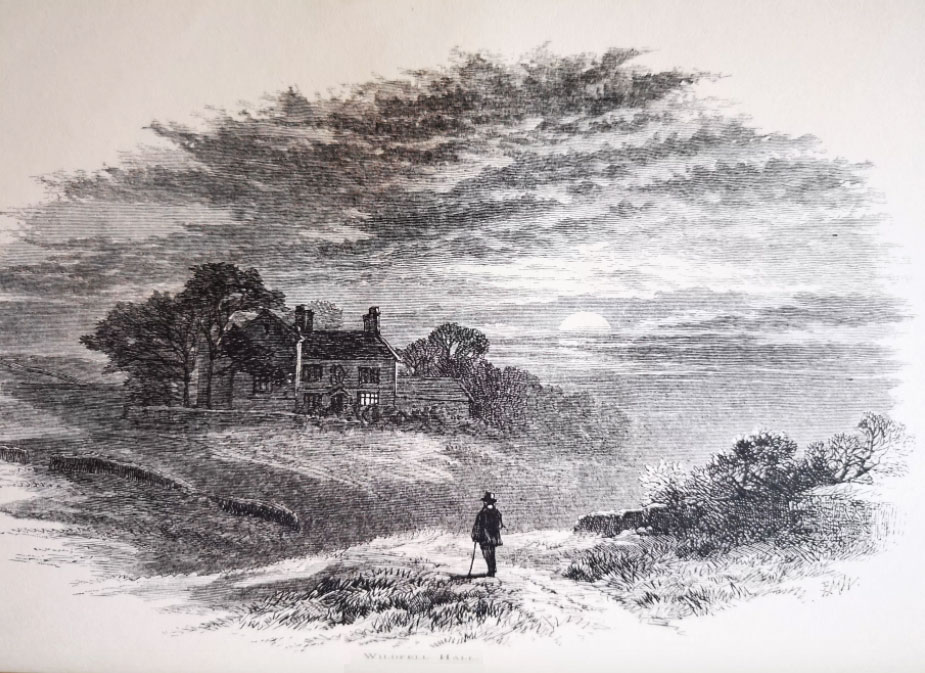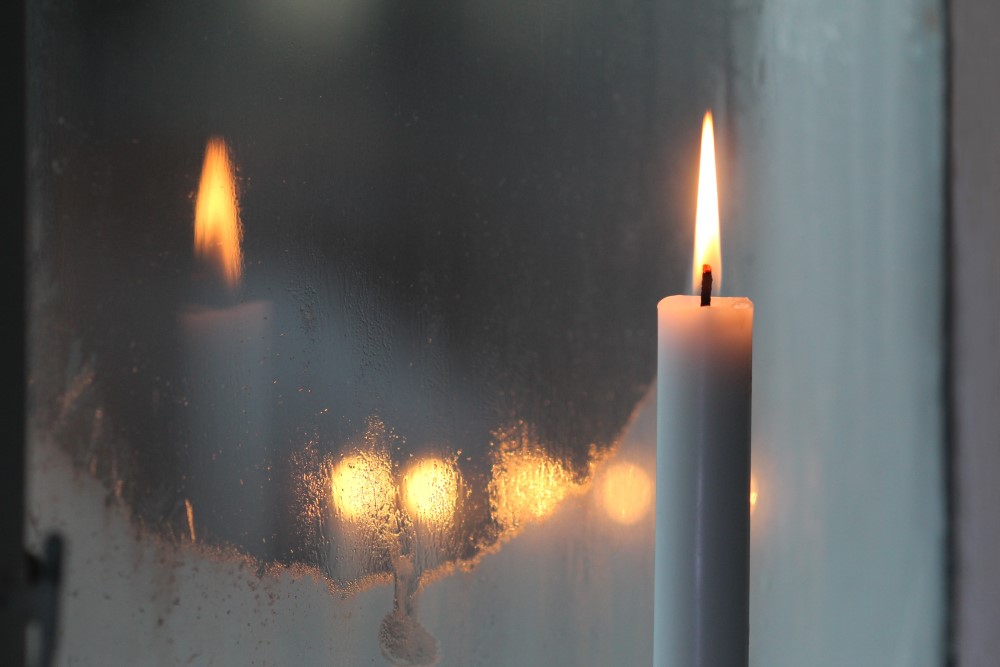View
Too Close for Comfort
Rod Dreher on Liberal Christianity
As part of Generation X, I am (or so demographers say) temperamentally inclined to irony. Our sort will watch a rotten ’70s-era sitcom on Nick at Nite not in spite of its awfulness, but because of it.
This helps, sometimes. It is hard to keep one’s sanity when confronted with someone as mischievous, and even wicked, as, say, a high official of the World Council of Churches praising the Rt. Rev. Fidel Castro. Because I try to be amused, not disgusted, I tend to view the pious pronouncements of religious liberals as a form of church camp.
So when a book publicist unaccountably sent me a copy of The Close, a personal account of a young female seminarian’s first year at the Episcopal General Theological Seminary here in New York, I read the book jacket, and immediately begin to salivate.
A Different Religion
Chloe Breyer, it turns out, is the daughter of Stephen Breyer, an associate justice of the US Supreme Court, and an unreconstructed New England liberal. There she was on the back-flap photo, a tiny, curly-haired sprite, swaddled in a winter jacket, her eyes sparkling.
The back cover carried enthusiastic blurbs from Desmond Tutu, Jane Holmes Dixon (Episcopal suffragan bishop of Washington, D.C.), and the usual liberal Protestant suspects. I couldn’t imagine the thing was worth reading—which is not, you understand, an impediment to wanting to read it. I decided I’d take the book along for the half-hour subway ride back to Brooklyn, get a few kicks, and discard it.
But on the way to the Times Square train, I got to thinking that this irony, this smug, schadenfreude-based taking pleasure in someone else’s errors, is pretty unattractive. I had recently attended a Catholic dinner and sat next to an editor of America, the liberal Jesuit magazine. We didn’t talk religion, but he was altogether delightful. If I only gave serious attention to the conversations and writings of fellow Christian traditionalists, didn’t I risk falling into triumphalism and self-righteousness? Ms. Breyer’s memoir might be good for me.
Before I boarded the train, I resolved to read The Close all the way through, and to keep an open mind as much as possible. I needed to reacquaint myself with the way a liberal religious mind works, if only to understand why we orthodox believers of whatever stripe (I myself am a Catholic) so often seemed to practice a different religion altogether than liberal members of our own churches.
Well: Breyer begins The Close by discussing her own “marginal” Christian background. Her father is a non-observant Jew, her mother an Anglican who, by her daughter’s account, went to church because the hymns reminded her of her English childhood. She says she first felt her calling to the priesthood in 1988, during summer vacation from college. In Texas, she met an aged “cowboy missionary” who impressed her with his intellect, spirit of awe, and sense of adventure.
No small number of us have considered the ministry after meeting such people. Such epiphanies are usually the starting points for periods of deep reflection. But Breyer gives no indication of having done any serious thinking about God between her Texas awakening—she found the old man’s Jesus talk “alien,” but liked his style, she writes—and entering the seminary.
Meeting a homespun holy man is one thing, but when did Chloe Breyer meet Jesus? It is unfathomable how or why anyone would choose the Christian ministry without having what the Evangelicals call a “close, personal relationship with Jesus.” Isn’t that a given? If not, if all you really want is to do good and change society, there are many other vocational paths, and most of them pay better.
My own conversion began with reading Thomas Merton’s The Seven Storey Mountain, particularly the long and frequent passages discussing God and his own mortal soul. When the book ends with Merton’s decision to enter the consecrated religious life, you know precisely why he made the leap.
Not so Ms. Breyer. The Close is less a spiritual autobiography, of which there seems pitifully little for her to say, than an account of life in a professional school. It is full of the details of seminary life, and the personal challenges she met in learning the ropes that first year. There is very little discussion of her prayer life or her sense of a personal relationship with God and what that means to her.
Corrective Liberalism
The great questions of Christian moral theology only seem to engage her mind as obstacles to be gotten around so she can get busy saving the world (but from what and for what?). She begins her second semester of New Testament studies convinced that St. Paul is “a misogynistic zealot” who “has a lot to answer for.” She consigns most of his writings—which, of course, comprise the bulk of the New Testament—“into the category of things despite which I call myself a Christian.”
Not only does the apostle have to prove his worth to this proud young woman, but he can only be justified in her view by a teacher who is “as untraditional as the insights I craved.” She congratulates herself on her nonconformity. It never occurs to her to question her own assumptions.
Her professor does change her mind somewhat about St. Paul, but the aspiring divine is not entirely satisfied until many courses later, when she understands “that what I abhor are the classical interpretations of Paul, not his writings themselves.” One of these courses is offered by an East German woman at Union Theological Seminary, who teaches a technique for turning Paul into, what do you know, a modern-day liberal. “[W]e determine that Paul, had he lived today,” she writes, “would have advocated forms of civil disobedience and supported the rights of gay men and women.”
Men, I suppose, like Brad, her snuff-dipping, openly homosexual classmate from Alabama. She is offended on Brad’s behalf because his bishop asked him to remain celibate as a priest—“an expectation that apparently did not apply to heterosexual candidates for orientation,” she observes. “I don’t have to hang around Brad long to understand what he thinks of piety and where the Episcopal church can put it,” she writes approvingly. Good grief.
This spirit of lese-majeste can manifest itself in the most unbelievable ways. She is the Platonic ideal of the contemporary liberal bourgeoisie. She is paralyzed when faced with the prospect of having to ask the custodial staff, who are either black or Hispanic, to fix the dangerously malfunctioning elevator. She is afraid she’ll be thought of as racist and elitist.
But when the whites who run the seminary get serious about their rules governing pet ownership (they have this crazy idea that seminarians should fastidiously clean up after their animals), she is vexed, and turns her pups into canine Gandhis protesting against the seminary’s “oppressive overscrupulousness.” When they poop on the lobby floor, in sight of a disapproving administrator, she writes that “active, nonviolent resistance would have been the only truly Biblical response [to the repression], yet only my dogs grasped that.”
Her Reading
Clearly—and I mean this with all charity—Chloe Breyer is a nitwit. And a snob. She is depressed by news that graduating seniors are being called to minister at obscure small-town parishes. Her willingness to serve God’s people is conditional on their being where she wants to serve. In a telling comment, she writes, “I still prefer to read The New Yorker, not Episcopal Life.”
What she is getting at here is the painful process of dying to oneself that every Christian, particularly those who choose to serve in the ministry, must endure. Any reader would sympathize, but over and over, her problem is not that she has these all-too-human feelings, but that she assumes that because she has them, they are valid.
The New Yorker line might be a small thing, but it reveals something essential: she is a spoiled little rich girl. When the seminarians are told to find a local parish in which to serve a kind of internship, she can’t make up her mind. Finally a mid-sized Manhattan church makes her a generous offer, which she accepts.
On second thought, she decides it’s not really her kind of place, and she waits until the poor rector is in the middle of his sermon in her installation ceremony to tell him she’s changed her mind. That’s right: this young woman leaves the groom at the altar, as it were.
Oh, she admits to feeling awful about that one, but the heart wants what it wants. She is quickly snapped up by the Cathedral Church of St. John the Divine, which is more her high-flying style. The jilted church is fast forgotten.
On the evidence of this book, her Christianity is close to being beyond parody. At a protest against police brutality, she joins her mentor, Canon Susan Harriss [sic], in a successful attempt at getting arrested. In the paddy wagon, Breyer notes, without apparent irony, that some of her fellow passengers complain about the lack of seat belts.
That is the least of the human tragedies borne by those dauntless Episcopalians who have hurled themselves into this white-hot crucible of social justice. “Canon Harriss has tickets to see a musical that evening with her husband and kids,” Breyer writes. “She is betting on being let out in time to be late for dinner but not too late for the show. . . . Spending the afternoon in jail had not been on her to-do list.”
Liberalism’s Consequences
The Close is, obviously, a gold mine of material for Touchstone’s “No Comment” column. If that’s all it was, it would be worth the customary laugh. But reading the book made me think in a way I hadn’t in years, since leaving the Episcopal Church for Rome, about the evil—there is no other word, I’m afraid—consequences of today’s liberal Christianity.
Take this characteristic Breyerian passage: “Many of the people I read about who called themselves Christians were protesting abortion clinics, organizing against gay rights, or embezzling their followers’ donations.” Those Christians who believe, as the church has since its inception, that abortion and homosexuality are immoral are in the same league with the lowest sort of thief. It’s an outrageous slander, one that depends on jettisoning the whole of historical Christian moral theology.
What is even more offensive, and scandalous, is that Chloe Breyer doesn’t even bother defending it. She is so saturated with the prejudices of her historical period and social class, which has been at the vanguard of the sexual revolution and has with extraordinary discipline failed to learn its lessons, that she feels no need to justify or explain herself.
We soon find Breyer and some classmates at Bellevue Hospital, serving an eight-week internship with the chaplaincy. Here is her reaction upon watching Mary, a fellow seminarian, talking to Tashi, a young woman who had just aborted twins, and felt horrible about it. Mary was trying to help Tashi “to move beyond regret.”
“Listening to Mary,” she writes. “I thought that the tragedy was not so much the abortion itself as it was the fact that such a large decision had been made so hastily and with no outside guidance.” What can an orthodox Christian say to someone that indifferent to the moral horror of double homicide inside a mother’s womb, aside from, “Repent!”? Words fail me. Actually, they don’t, but those words would be unprintable, and would send me straight to the confessional.
Breyer runs across Touchstone’s kind of guy at Bellevue, and she doesn’t know what to do with him. His name is Thomas, and he is one of the members of the pastoral care program who does not hail from General. He’s a Yale Divinity School student from a traditional Protestant background.
“It is eye-opening to watch Thomas unapologetically defend his pastoral decisions on Scriptural grounds,” she observes. “While the rest of us trip over each other to see situations in murkier shades of gray.”
Her Future Ministry
I predict Thomas’s ministry will go far, while those of Ms. Breyer and her faithless lot will . . . well, see for yourself. Our Chloe decides to set up a Bible study for a group of Bellevue patients who are in from Rikers Island, the notorious city prison. She plays a video segment from the Bill Moyers series Genesis. The inmates see Bible scholars agreeing that Genesis gives us plenty of questions, but few answers. Her students don’t get it.
“They’re supposed to be experts, right?” says Tyrone. “So then why are they giving us all this stuff about not having any answers? I mean, it doesn’t take a Ph.D. not to have answers! And if they don’t have any answers, then who does?”
Others chime in with contempt for the equivocating liberal scholars Breyer so admires. Finally, a Muslim convert speaks up. “See, this is what I’m telling you, man. The Koran is the place to go for answers! . . . I became a Muslim because the Koran has the most truth in it. You don’t argue about what it means. You read it, and you know what to do. The Prophet got the word directly from God.”
“Is that right?” asks Tyrone. “Is that how it is? The Koran has more answers than the Bible?” Undeterred, and unable to grasp the significance of the moment, Breyer sets out to teach these poor sinners that the Bible doesn’t have to be taken literally. There are lots of gray areas, she tells them, and they should feel empowered by the fact that they can interpret Scripture any way they like. The inmates are unmoved.
“They want answers, not questions,” Breyer writes. “[T]he more contradictions I point out in the Bible, the more the inmates decide there is no point in wasting their time with a religion that lacks answers.”
Smart cookies, those crooks, who intuitively grasp the worthlessness of Breyer’s baptized sophistries to their broken lives. Their critique is utterly lost on this earnest young woman, who does not know, or perhaps simply does not have the courage or conviction to say to these men, that Jesus is “the Way, the Truth, and the Life.”
She reminds me of the faithless pastor in Ingmar Bergman’s Winter Light, who, when asked by a parishioner terrified of nuclear war for a reason to hope, had none to give him. The anguished parishioner commits suicide. The only consolation any of us might take from the education of Chloe Breyer is that her kind of Christianity is committing slow suicide—except that it is taking who knows how many souls down with it.
The Close natters on for a couple more chapters, but that is where it ended for me—appropriately, because though Breyer misses the point, her experience with the prisoners reveals where liberal Christianity ultimately ends up: not only impotent and ignored, but also in its irrelevance handing people over to false gospels and false gods. The poor, for whom Christ suffered and died, cannot afford the fashionable falsehoods proclaimed by the world’s Chloe Breyers. That’s why the poor want little or nothing to do with that counterfeit faith.
What It Comes Down To
Not that that will mean anything to the new generations instructed in comforting heresies and soi-disant ambiguities (those murkier shades of gray) by the Rev. Chloe Breyer and her ilk. But people like her will continue to be ordained, and will continue to be dispatched to parishes across the land. She is, on paper anyway, an energetic and exceedingly nice young woman, and she would probably be welcomed into the rectorship of any number of affluent and fashionable parishes.
This is what it comes down to: the eternal life of individual souls, their fate in this life (Joan Brown Campbell helped get Elián Gonzalez sent back to Castroite slavery, after all), and the survival of the Christian Faith. Liberal Christianity, from both a theological and sociological point of view, is death. Those inmates were grasping for Jesus, but all Breyer had to offer them was the Jesus Seminar.
The editor of Touchstone is right to keep the “No Comment” section so small. If you think about the real-world consequences of that nonsense, it is no laughing matter. Those anecdotes are like fugu fish, the deadly Japanese delicacy. A taste of it is a kick, but more than that and you’ll never stop throwing up.
Rod Dreher is a contributing editor to Touchstone. He is a writer and blogger and the author of several books, including The Benedict Option (2017) and Live Not by Lies: A Manual for Christian Dissidents (2020).
subscription options
Order
Print/Online Subscription

Get six issues (one year) of Touchstone PLUS full online access including pdf downloads for only $39.95. That's only $3.34 per month!
Order
Online Only
Subscription

Get a one-year full-access subscription to the Touchstone online archives for only $19.95. That's only $1.66 per month!
bulk subscriptions
Order Touchstone subscriptions in bulk and save $10 per sub! Each subscription includes 6 issues of Touchstone plus full online access to touchstonemag.com—including archives, videos, and pdf downloads of recent issues for only $29.95 each! Great for churches or study groups.
Transactions will be processed on a secure server.
more on liberalism from the online archives
more from the online archives
calling all readers
Please Donate
"There are magazines worth reading but few worth saving . . . Touchstone is just such a magazine."
—Alice von Hildebrand
"Here we do not concede one square millimeter of territory to falsehood, folly, contemporary sentimentality, or fashion. We speak the truth, and let God be our judge. . . . Touchstone is the one committedly Christian conservative journal."
—Anthony Esolen, Touchstone senior editor






